By Robert Baker
By any measure, 2023 was good to Jake Heggie. He had several high-profile world premieres, including his new opera Intelligence with the Houston Grand Opera and his instrumental work “Fire” (part of violinist Joshua Bell’s five-composer commission collectively called The Elements) with the New York Philharmonic. And the New York Metropolitan Opera opened its season with Dead Man Walking, Heggie’s breakout first opera.
“Frankly, I’m glad 2023 is over,” said Heggie, taking a moment to laugh during our interview. “All this high-profile stuff is a bit much. I’m used to being in my studio and writing.”
Heggie’s modesty is disarming, especially for somebody whom the Wall Street Journal dubbed “arguably the world’s most popular 21st-century opera and art song composer.” Heggie’s popularity is easy to understand. His music can summon intense and blinding passion, or manifest guarded restraint. His arias reference everyone from Verdi to Bernstein, and from Wagner to Elvis. And yet, his formidable technical expertise and deep well of musical knowledge never get in the way of his storytelling. As was noted by a New York Times reviewer, “Mr. Heggie writes for general audiences, not future doctoral students.”
Jake Heggie is the class of 2024 commencement speaker at The UCLA Herb Alpert School of Music. He arrives on the forty-year anniversary of his own graduation from UCLA and with a record of astonishing artistic and commercial successes. But his path from a bachelor’s in music to international fame was far from meteoric. In fact, his trajectory might surprise you.
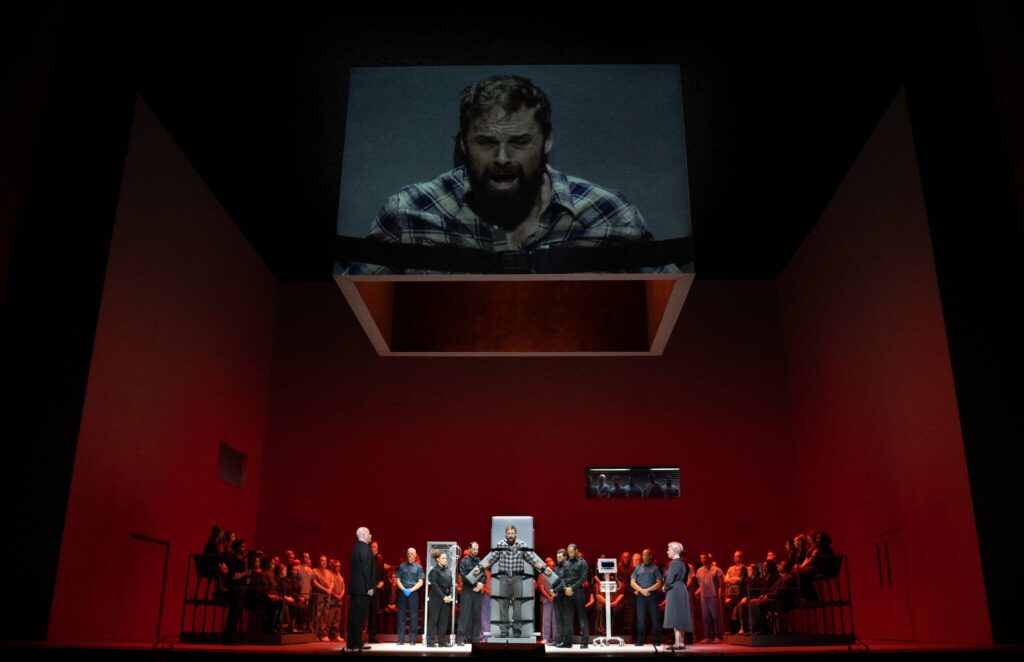
* * *
Jake Heggie lives in the Bay Area, and so we conducted the interview for this piece on Zoom. He sat on the bench of an upright piano, dressed in an unzipped gray hoodie over a blue t-shirt with white and purple printing reading “be yourself.” He’s a slender man with kind features and an unassuming bearing.
Music writers have noted Heggie’s midwestern upbringing by parents without deep connections in the classical music world and have made much of the fact that Heggie has cited Ella Fitzgerald, Frank Sinatra and Barbara Streisand as his early influences. It makes for an appealing narrative—the twenty-first century’s biggest opera composer is, at heart, a child of popular culture. Maybe so, but it inaccurately pigeon-holes Heggie.
“As a kid, I had a bust of Beethoven on my piano, just like Schroeder,” said Heggie, referencing the cartoon character from George Schultz’s Peanuts comic strip. “I was in love with all of it. The more different kinds of music that came into my life, the more astonished I was. It was as if a portal was being opened to a whole new world that I knew nothing about. People who say they don’t like this or that kind of music, I just don’t understand it. How can you not like it? It’s all connected.”
Heggie’s parents gave him piano lessons early on. He attended group lessons and learned by the John W. Schaum method, an introduction to classical piano that used sing-a-longs and children’s melodies to teach technique. Even in these short pieces, Heggie found himself wondering about the stories that must accompany music like “Baby Elephant Walk,” and “Cold Shower.”
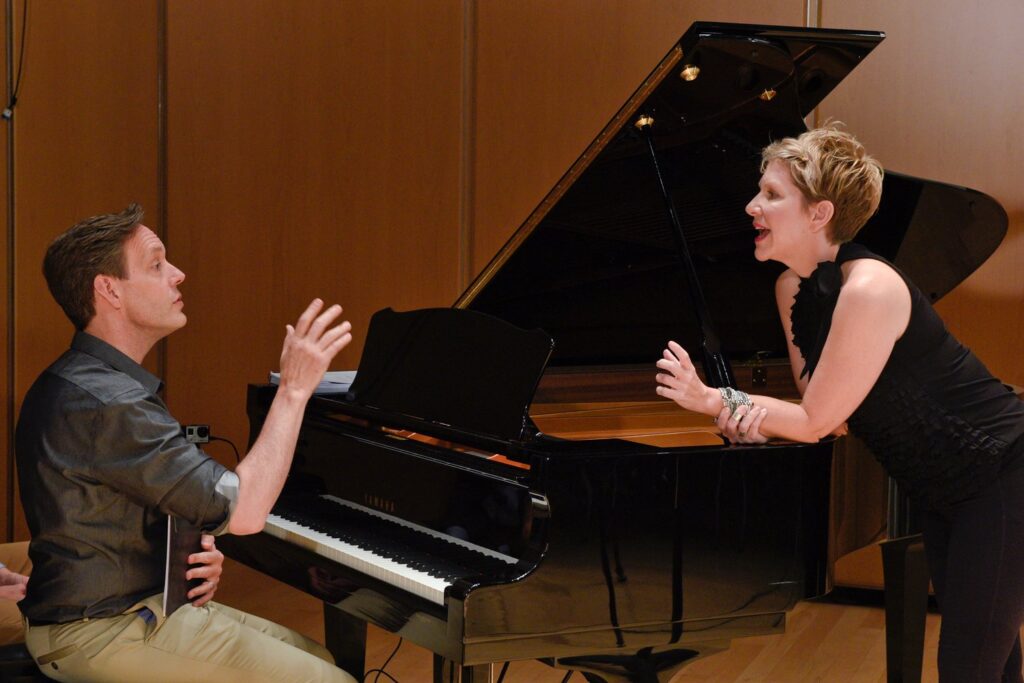
As Heggie was introduced to more sophisticated composers, the sometimes-unspoken stories behind music piqued his curiosity. What stories did Mozart bake into his symphonies? What tale was Beethoven telling in Moonlight Sonata? And, as Heggie was beginning to fathom, the greatest performers always seemed to turn compositions into their own, unique stories.
Heggie carried this curiosity to UCLA as an undergraduate, where he studied piano with Johana Harris. (Incidentally, in 1987, Harris was the first music professor to receive UCLA’s Distinguished Teaching Award.) Although Heggie generously grants credit to all who instructed him (“I was lucky, I had great teachers”), Harris was his first great coach when it came to technique. He specifically recalls his UCLA experience as one of long hours in the practice rooms, doing the hard work of honing his skills.
Not that Heggie spent all his time in the practice rooms. He studied piano in Paris. He bought a Eurorail pass and chased the inspiration of famous composers and pianists before him. At UCLA, he attended concerts at Schoenberg and Royce Hall. He worked as a page turner for legendary performers, watching their artistic process close-up. He composed music as well, writing Broadway songs and popular ballads. He and his fellow classmates founded an undergraduate composers’ society, which connected them to other composers in southern California.
He also found inspiration in the classroom.
“Jim Low’s art song class blew the top of my head off,” said Heggie. Heggie had loved songs of all kinds, from popular ballads to Broadway tunes, but the classical art song, which set poetry to music, was still undiscovered country for him. “I had never gone deeply into Schubert, Schumann, Brahms—the foundations. And this professor was so in love with art song. His passion was not just studying its technical aspects, he was excited about the composer, about the words and the poet and the authors.”
Low would also trace the lineages, showing how composers influenced one another and would connect through generations. And it got Heggie thinking. His teacher, Johana Harris, had studied with a disciple of Franz Lizst. Lizst had played for Beethoven, and Beethoven for Mozart.
“I was five handshakes from Mozart.”
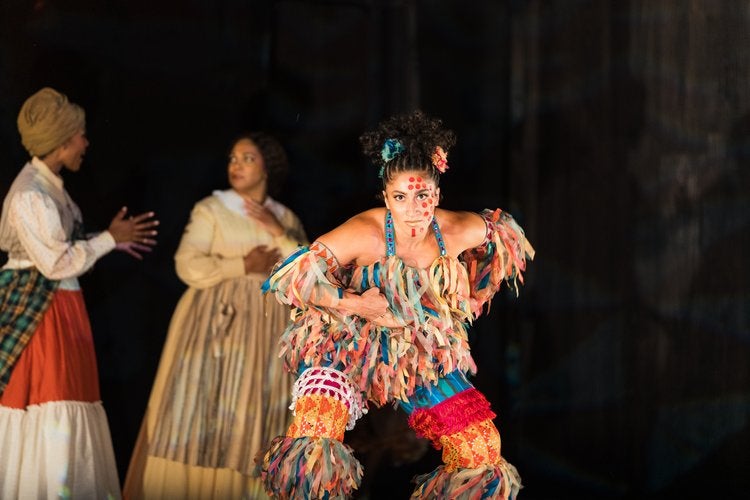
* * *
Heggie missed his graduation. He had a performing gig that he couldn’t afford to turn down.
It was a normal part of the life of a young musician, recently graduated. Heggie chased down opportunities where he could find them. He taught piano and worked odd jobs in between performing. He also composed music. He had discovered a passion for art songs at UCLA, and Jim Low had encouraged him to write them.
He started writing art songs, setting poetry to music, and sharing them whenever possible. He had a talent for it. His art songs were sonorous and melodic, beautiful to all who heard them.
“I remember I showed some of the music I was writing to soprano Kiri Te Kanawa’s accompanist,” said Heggie. (Incidentally, Heggie would later write songs for Kiri Te Kanawa.) “And [the accompanist] said ‘they are very beautiful, and the poems are very respectfully set, but you aren’t doing anything with them, so I have no sense of you. You’re being too respectful.’”
Was Heggie too comfortable?
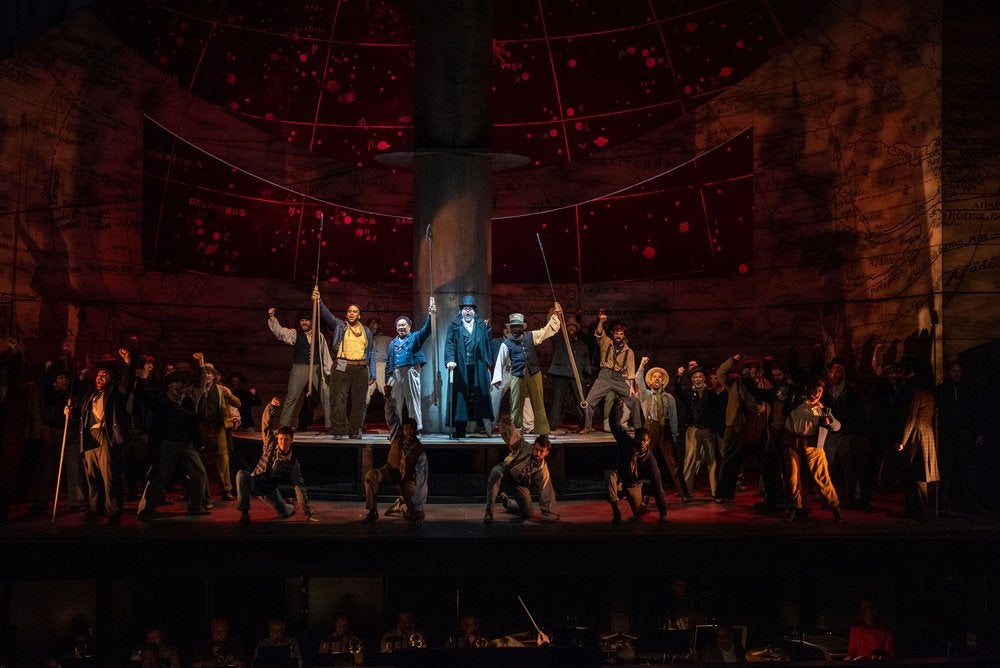
In 1987, Heggie was invited to one of Betty Freeman’s legendary parties. Freeman, a great patron of the arts who commissioned Pierre Boulez, John Cage and Steve Reich, had begun holding musical salons in 1981 at her Beverly Hills home. Each salon would feature one or two composers who would perform and discuss their works. John Adams, Peter Sellars, and a virtual “who’s who” of late twentieth century composers presented to an audience of composers, conductors, musicians and music lovers.
This particular Freeman salon featured Ned Rorem, the Pulitzer Prize-winning composer. Young and brash, Heggie struck up a conversation and asked if Rorem would give him advice. Rorem told Heggie to send him a tape. Heggie did, and Rorem took the time to write him a letter that praised his skill and abilities, but also included a blunt criticism.
“Rorem told me I was playing it safe. He urged me to find my own voice. He even told me to write some self-consciously ugly music, maybe something that wouldn’t be performed, but that would broaden my palate.”
Heggie decided to go back to UCLA to study composition. Graduate school would provide a chance to push his boundaries and to build a new network of peers. But circumstances intervened. Heggie developed a neurological disorder, focal dystonia, in his hand and became unable to continue playing the piano.
Heggie dropped out of graduate school. And he needed a job.
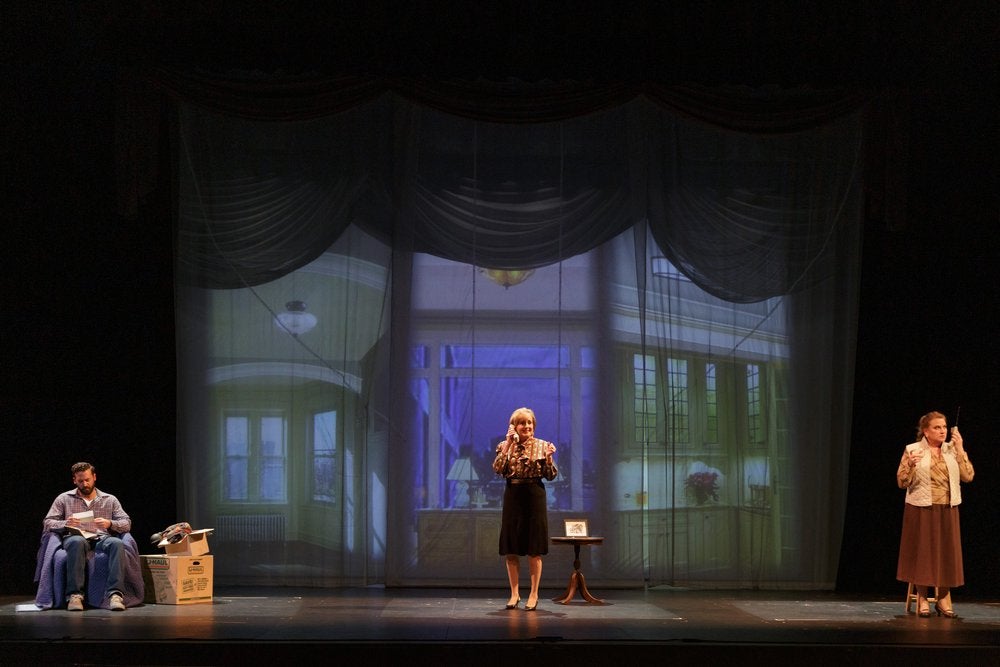
* * *
Although he quit playing music, Heggie stayed in the arts world. He was the page-turner for the UCLA Center for the Performing Arts, and a friend there found him a job running a private music series at the L’Ermitage Hotel in Beverly Hills.
Heggie then bounced around a bit, working as a copywriter for UCLA, at least until he decided it was time to leave Los Angeles. In 1993, Heggie moved to the Bay Area, where he took a copywriting job for Cal Performance at UC Berkeley. A year later, a job in PR and marketing came open at the San Francisco Opera. Heggie was one of 300 applicants, and he won the job. This was an unexpected career turn into marketing, and it had landed Heggie with a position in a premiere opera company at a propitious time.
“My hand was just coming back from the dystonia, and I was inspired by the singers at the San Francisco Opera,” said Heggie. “And, so, out of the blue, I just started writing for them. And they loved the songs. They started performing them all over the world.”
Lotfi Mansouri, the artistic director of the San Francisco opera, took note of the copywriter whose songs were being performed internationally by the likes of Frederica von Stade and Renée Fleming. In 1996, he approached Heggie and asked if he was interested in writing an opera with Terrence McNally, the Tony-award winning writer of Kiss of the Spider Woman and Love! Valour! Compassion!
Heggie was interested. Mansouri arranged for the two to meet in New York, where McNally was based. Mansouri told Heggie he wanted a comedy, something light for the new century, something with big frilly dresses and champagne to bring in the millennium.
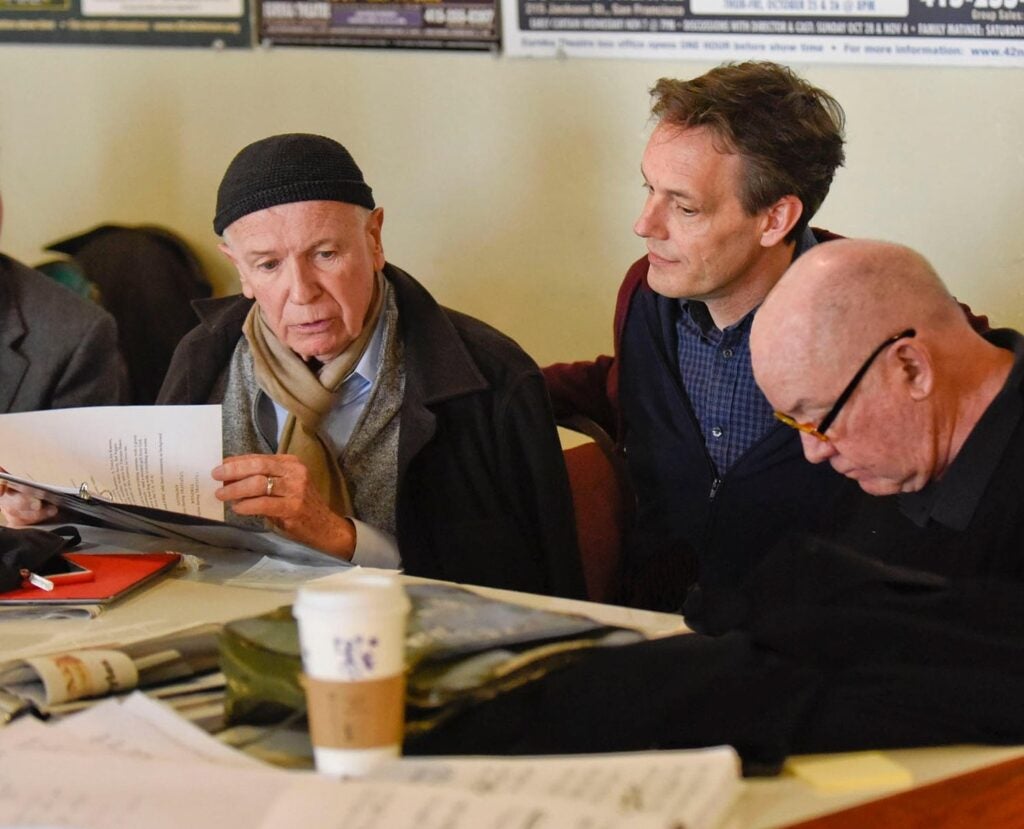
McNally was horrified by the idea, Heggie recalled. McNally wanted his first opera to be a big American drama. He already had an idea what he hungered to write, but he wanted Heggie’s input. And so, he prepared a list of ten possible operas and read them out loud to Heggie. The first one on the list was Sister Helen Prejean’s memoir (made into a film starring Susan Sarandon and Sean Penn in 1995), Dead Man Walking.
“Every hair on my body stood up,” said Heggie. “I could hear the music. I could feel the rush. I told him to stop, that it was the one.” It turned out that Dead Man Walking was McNally’s first choice too, but ever the methodical collaborator, he wanted Heggie’s honest opinion. Heggie obliged and listened to the list. “It didn’t matter,” said Heggie. “I can only remember, maybe, two other ideas on that list.” McNally and Heggie were set to write Dead Man Walking.
Heggie was still on the copywriting desk at the San Francisco Opera. McNally was a playwright, not a librettist. The two had exactly zero operas between them. It would be a big risk for a new commission, and not in line with what Lotfi Mansouri had initially wanted.
But Mansouri bought into the vision. He made Heggie the opera company’s composer-in-residence for 1998-99, and into 2000 for the opera’s premiere. It was a terrific gambit, and no one could have predicted the resonance of the opera, which has had seventy-six international productions since its premiere in San Francisco, with even more programmed.
From writing marketing copy to composer-in-residence.
“My career has really been…” Heggie stops to consider this for a second. Then he makes a wavy motion with his hand and forearm. “Like this.”
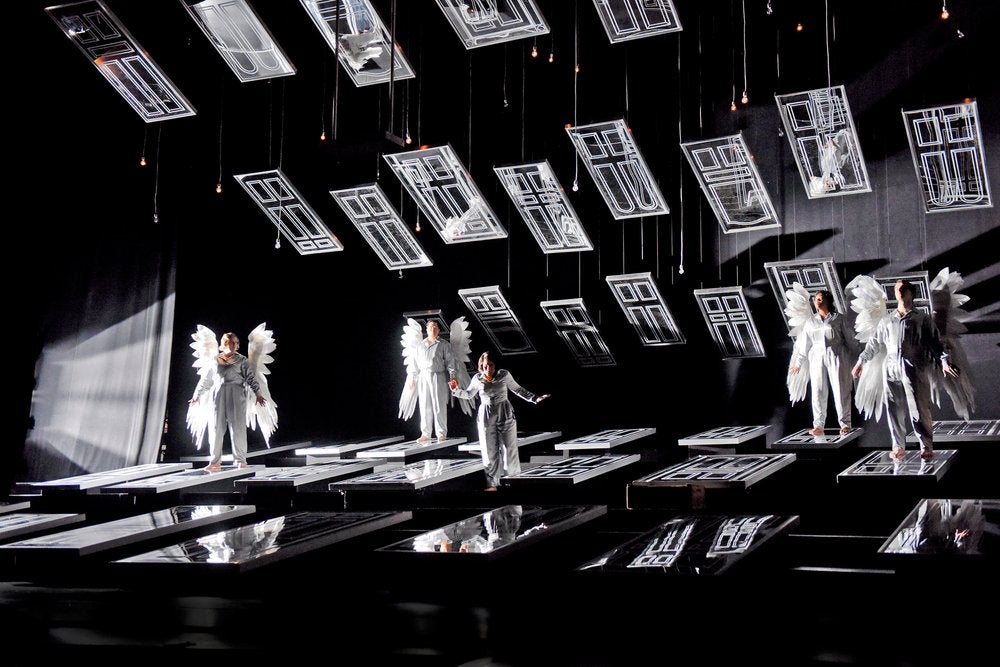
* * *
When invited to speak at The UCLA Herb Alpert School of Music’s 2024 commencement, Heggie leapt at the chance. He was eager to return to UCLA, to walk the campus, to see the Schoenberg Music Building and visit the old practice rooms. It will be a homecoming, a chance to return forty years after he completed his own bachelor’s degree, even after circumstances forced him to miss the chance to walk in cap and gown with his peers.
“This will be my graduation, too,” said Heggie. “It will be amazing to share that moment with all this year’s graduates.”
